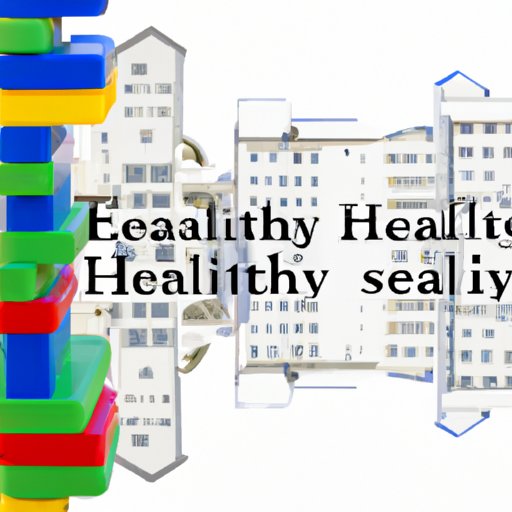Introduction
Health equity refers to the fair and just distribution of resources and opportunities that allow all people to reach their full potential in terms of health and wellbeing. Health equity is an important concept because it recognizes that not everyone has the same access to resources or opportunities, and that these differences can result in disparities in health outcomes. This article will explore the impact of social and structural inequalities on health, focusing on the role of race and ethnicity, socioeconomic status, gender inequality, poverty, and environmental contaminants.

Exploring the Impact of Social and Structural Inequalities on Health
Social and structural inequalities have a significant impact on health outcomes. Race and ethnicity are major factors influencing health disparities, with people of color facing higher rates of chronic illnesses, lower life expectancy, and poorer health outcomes than their white counterparts. Research has shown that Black and Native American populations experience the greatest disparities in health outcomes.
Socioeconomic status is another major factor impacting health outcomes. People with lower incomes are more likely to have limited access to quality healthcare, healthy food, and safe housing. They are also more likely to live in areas with higher levels of air pollution and other environmental contaminants, further increasing their risk of developing chronic illnesses.
Gender inequality is another factor contributing to health disparities. Women are more likely than men to experience poverty and lack of access to quality healthcare services, putting them at greater risk for poor health outcomes. Additionally, women are more likely to be exposed to violence and other forms of abuse, which can lead to long-term physical and mental health problems.
Examining Access to Quality Healthcare Across Different Populations
Access to quality healthcare is essential for promoting health equity. People living in poverty are less likely to be able to afford medical care, resulting in poorer health outcomes. Additionally, people of color are more likely to face discrimination when accessing healthcare services, leading to disparities in care.
Environmental contaminants can also play a role in health disparities. People living in low-income areas are more likely to be exposed to air pollution, water contamination, and other environmental hazards, increasing their risk of developing chronic illnesses. Additionally, children living in poverty are more likely to suffer from lead poisoning, which can have long-term effects on cognitive development.
Conclusion
Health equity is an important concept because it recognizes that not everyone has the same access to resources or opportunities, and that these differences can result in disparities in health outcomes. Social and structural inequalities have a significant impact on health outcomes, with race and ethnicity, socioeconomic status, gender inequality, poverty, and environmental contaminants all playing a role. Access to quality healthcare is essential for promoting health equity, and efforts must be made to ensure that all people have access to the care they need. Finally, policies and initiatives should be implemented to address the root causes of health disparities and promote health equity.
In conclusion, health equity is essential for ensuring that all people have the opportunity to reach their full potential in terms of health and wellbeing. By addressing the social and structural inequalities that contribute to health disparities, we can work towards creating a more equitable and just society.
(Note: Is this article not meeting your expectations? Do you have knowledge or insights to share? Unlock new opportunities and expand your reach by joining our authors team. Click Registration to join us and share your expertise with our readers.)
